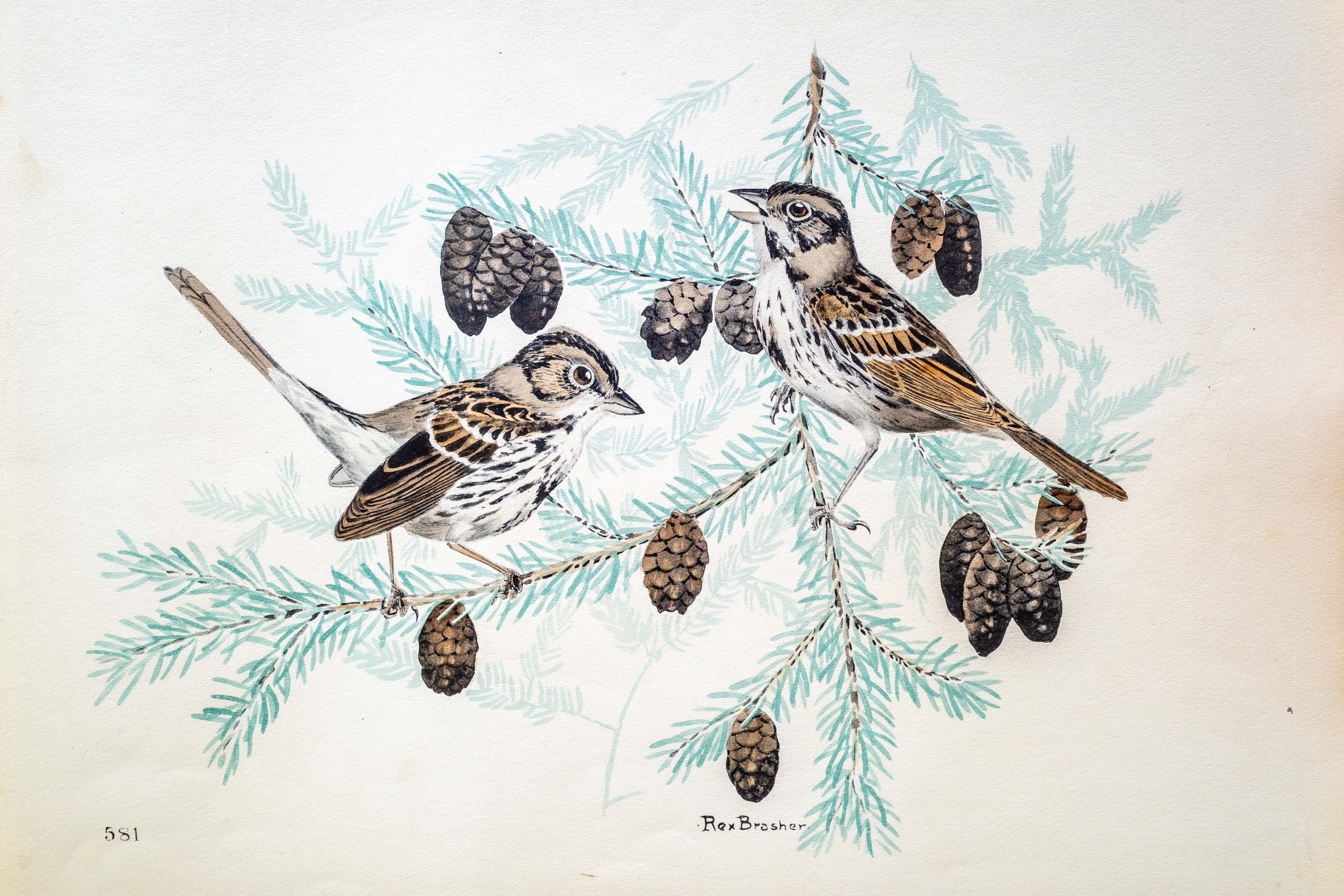
A misty valley with dim March sun wanly touching pale yellow branches of the old willows. Altho a few scattered snowpatches linger the morning is not cold and thru the silvery light come the first SONG SPARROW'S tinkling notes. There he sits upon an alder top, magnified to robin size, his head thrown back, his throat quivering with the old refrain.
Listening, I released the reins of memory. — I was standing on the porch of a Babylon hotel (where my father had taken me for one of their famous shore dinners), watching a brown bird singing. Then a tremendous concussion directly behind startled me so that I jumped off that porch and into the bush. A negro waiter with a sense of humor (?) had sounded the dinner call on a heavy iron pan.
There has not been a Spring in the ensuing half century when the Song Sparrow's reveille has gone unheard. Even when life was urban a trip was always made to the outskirts especially to hear the gallant little birds — and I was never disappointed. An interesting characteristic is the wide variation of their song. We watch eagerly every Spring for our particular bird and are glad when his clipt notes assure us that the "dangers of field and flood" have been successfully eluded once more. He has been with us for six years (1929) and that is nearly the full span of a Sparrow's life.
My favorite bird? — Song Sparrow, of course, because he possesses all the admirable traits for which humanity is still struggling. In fact I have two favorites: "Silvertongue" in summer; Chickadee, in winter.
North America east of Rockies from about parallel 55 southward.